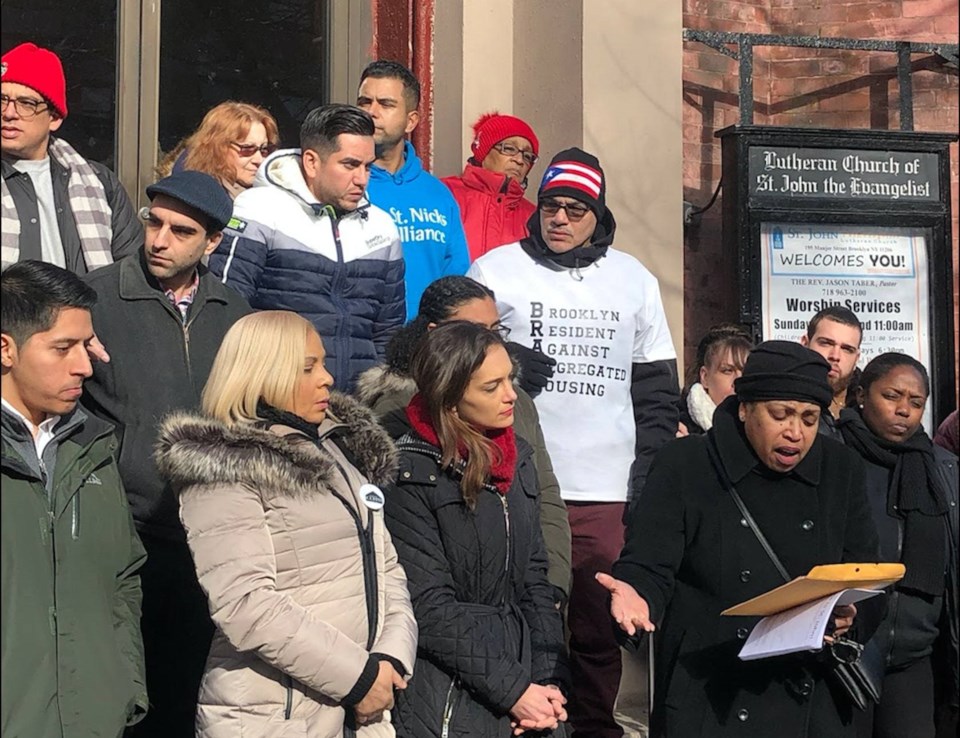Community housing advocates were joined on Sunday by Bushwick State Senator Julia Salazar and Assemblymember Maritza Davila, and Flatbush Councilmember Jumaane Williams for the launch of a new campaign to address racial segregation caused by city rezonings.
Churches United for Fair Housing, Brooklyn Legal Services Corporation A and members of St. John the Evangelist Lutheran Church proposed the addition of a Racial Impact Study to the existing Environmental Impact Study, which evaluates the impacts on the environment as a result of city land-use projects and which is already a requirement before the city approves any rezoning plans.
"Our current rezoning process leads to aggressive displacement which leads to increased segregation in an already segregated city," said Alex Fennell, CUFFH network director. "Colorblind policies that pretend this is not a race issue have gotten us where we are today, and it is well past time to not just stop this trend but to reverse it."
Since 2002, New York City has completed hundreds of neighborhood rezonings, covering approximately 40 percent of the city, allowing for more luxury developments in lower-income neighborhoods of color, according to CUFFH. Advocates pointed to the 2005 Williamsburg waterfront rezoning which, a decade later, dramatically transformed the area: While the white population increased by 44 percent, the neighborhood's Latinx population declined by 27 percent. These demographic changes are not adequately summarized by statistics alone, CUFFH stated.
"These changes symbolize rampant harassment of low-income tenants, families being torn from the communities they have lived in for decades, and complete cultural erasure," said Fennell.
After analyzing and connecting the history of rezonings with increased harassment and evictions, speakers pointed to an urgent need for the city to acknowledge the impact of its decisions. Studying the demographic changes spurred by rezonings would require the city to certify that rezonings accelerate speculation and displacement, and result in rampant racial segregation, said CUFFH youth organizer Charlie Dulik.
"We know that housing justice and racial justice are intrinsically linked, but that the policies at a city level and a state level do not reflect this currently," said State Senator Salazar. "While we have a responsibility as state legislators to fight for stronger rent laws that finally work for tenants instead of landlords and developers, we also have a responsibility to fight for accountability in the zoning process. A racial impact study in the rezoning process is a critical way for us to hold the city accountable for the impact we know is happening to our communities."




